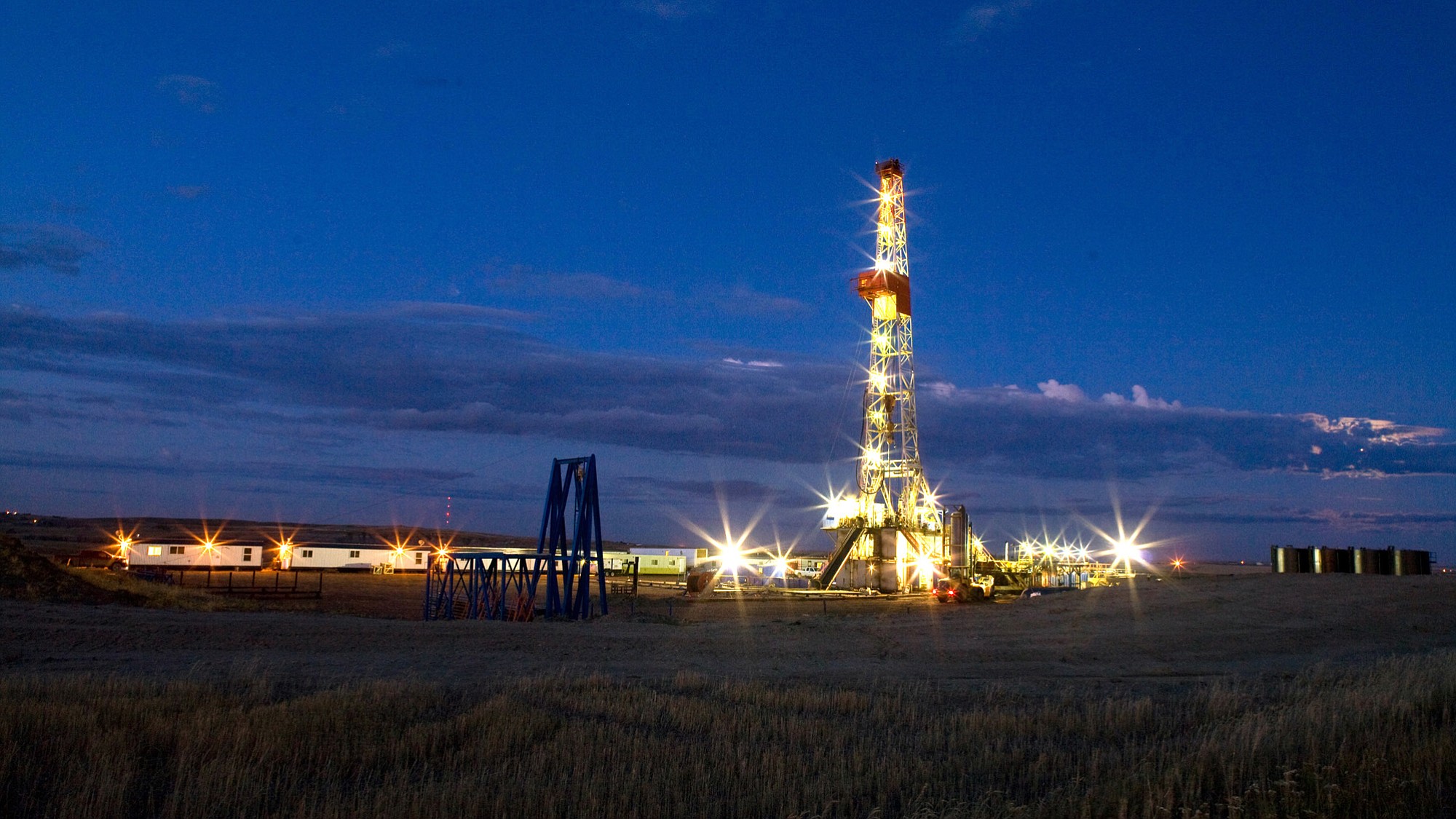SAN FRANCISCO — When Eric Slifka landed in North Dakota’s Bakken shale field three years ago, he says, he was overcome by “this feeling of a lot of growth. You could feel the pressure.”
The fervor was so strong that Slifka, chief executive officer of Global Partners in Waltham, Mass., decided in that single trip to carry Bakken crude on railcars that his company had been using to haul ethanol to New York. His first full trains started a wave of deliveries that rescued East Coast refiners from the brink of closing amid the rising cost of oil imported from Africa and the North Sea.
Shipments of U.S. oil by rail have since doubled to more than 1 million barrels a day, sparking a national debate over safety, and volumes may mount if the government allows more exports of crude, easing a four-decade ban. Global and other midstream carriers are preparing themselves for a chance to serve that market.
“The East Coast was left on a figurative island when everyone in the middle of the country got access to low-priced crude coming out of the Bakken, and oil by rail was its lifeline,” Bradley Olsen, managing director at energy investment bank Tudor, Pickering, Holt & Co., said by phone from Houston. “The next challenge is exports.”
Global Partners, a tax-exempt master limited partnership with a $1.19 billion market value, was worth half that when Slifka flew into the Bakken in 2011 to meet a local entrepreneur who owned a rail facility on the Canadian Pacific line. North Dakota’s oil production had surged by a record 42 percent to 310,000 barrels a day. It would go on to surpass 1 million this April, helping turn the U.S. into the world’s largest oil producer.
The flood of domestic crude has put pressure on the federal government to lift a ban on U.S. exports imposed by Congress in 1975 in response to the Arab oil crisis. Crude-by-rail companies will have to compete with pipelines to bring supplies to the coast if the prohibition is lifted, Olsen said.
“Once you’re trying to export, you’re just trying to reach the water, and you don’t care about going to a specific refinery,” he said. “So you’re just as likely to ship it on a pipeline to get it to a dock.”
The boom has also ignited regulatory battles from coast to coast. The derailment and explosion of an oil train that killed 47 people in Lac-Mégantic, Quebec, in July 2013 thrust rail operations into the limelight.
In New York, Global is facing a ban on expanding its Albany operations to include tar sands. In Oregon, state regulators said in March that Global unloaded more oil than permitted at its Clatskanie terminal that sends Bakken crude along the Columbia River by barge.
Global said in a March 5 email the Oregon complex is “in full compliance” with regulations. It sent a letter to Albany County on March 14 describing the county prohibition as “arbitrary and capricious.”
The U.S. Department of Transportation laid out a plan last week to phase out a generation of tank cars for crude shipments and impose speed limits, braking requirements and route stipulations.
While the industry is working with regulators to determine the safest way to ship oil, Slifka, now 49, said at an energy conference in Washington July 14 that “rail may actually be the safest mode of transportation for crude.”
On his first visit three years ago, so many companies were racing into the region to squeeze out oil from the Bakken that Slifka couldn’t find a hotel room. He said he stayed in Estevan, Saskatchewan, and drove 30 miles across the Canada-U.S. border to meet Don Bottrell, who owned a women’s clothing business, oil and gas wells and a trans-loading site in the area.
The biggest wave of refinery closings had meanwhile struck the East Coast as the price of North Sea Brent crude, the international benchmark, climbed.
“East Coast plants had the highest costs because they ran the champagne of oils, very light, very low-sulfur crudes predominantly from West Africa,” Kevin Waguespack, senior vice president of energy consulting firm Baker & O’Brien Inc., said by telephone from Houston July 28. “The Bakken reset their feedstock costs by several dollars a barrel. They’ve gone from losing to winning.”
EOG Resources Inc., at the time the second-largest oil producer on the Bakken formation, moved its first trainload on BNSF Railway’s tracks to Stroud, Okla., on Dec. 31, 2009.
The first dedicated train of Bakken crude arrived at Global’s fuel terminal in Albany, which had handled ethanol and refined fuels such as gasoline, on Oct. 25, 2011.
Others followed. Enbridge Inc.’s 80,000-barrel-a-day Eddystone rail complex outside Philadelphia received its first train in May. The Carlyle Group and Sunoco formed a joint venture to keep Sunoco’s Philadelphia refinery open and are adding a rail track to take as many as 14 unit trains of Bakken oil a week. Delta Air Lines Inc. bought Conoco’s Trainer, Pa., plant and on July 21 signed a contract for 65,000 barrels a day to arrive by rail.
Global, meanwhile, has bought, expanded and begun building oil terminals in North Dakota, Oregon, New York and Texas.
“If you look back historically on where oil is coming from and how it was transported, it has completely changed,” Slifka told an oil industry conference July 14. “You might as well take a pipeline map and turn it upside down.”
With the Texas terminal, Global is positioned for the flood of petroleum that may soon be leaving the nation’s shores should federal policy makers relax the decades-old export ban.
“Nobody can be sure where the market is going or what we will be carrying, but we are sure that we have positioned ourselves to carry whatever it demands,” Slifka said.



